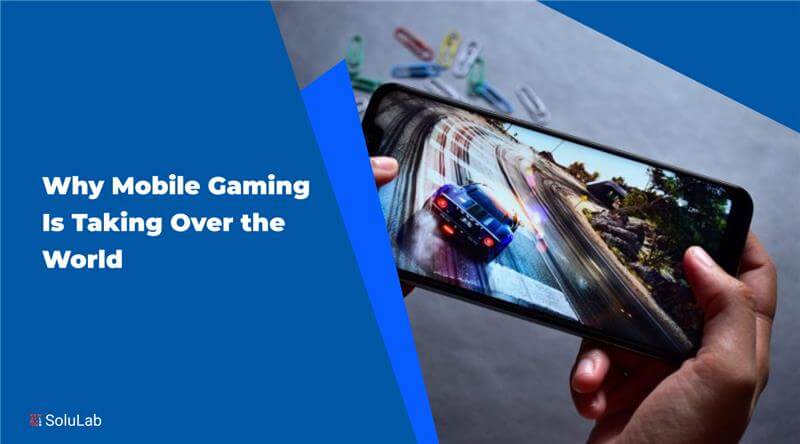
Mobile gaming isn’t just some side hobby anymore – it’s become a massive powerhouse that’s completely reshaping the entire gaming industry. Thanks to smartphones getting better every year and developers creating genuinely amazing games, mobile gaming is literally changing how we think about digital entertainment. There are tons of reasons why mobile gaming has moved from the sidelines to center stage, and honestly, it’s pretty fascinating to watch.
The Mobile Gaming Boom in Developed Countries
The biggest thing driving mobile gaming’s success? Pure convenience. Your phone is always with you, so your games are too. It’s that simple. Mobile gaming has really found its groove and is taking off even in markets where consoles and PCs used to be the only game in town. And honestly, with how much internet speeds have improved, you can hop into online matches without worrying about those frustrating lag spikes or getting kicked out mid-game.
The whole experience just feels smoother now – no more of that choppy gameplay that used to make mobile multiplayer a total headache. It’s pretty cool how you can pull out your phone anywhere and actually have a decent gaming session with people around the world. Who wants to get even more out of their gaming sessions, plenty of platforms are throwing in some pretty sweet deals and bonus codes. Players can get Joe Fortune bonus codes Australiafor better gaming experience. These extras can seriously boost mobile gaming experience, giving perks and rewards that make every game session more exciting than the last.
Game developers have caught onto this shift big time. They’re not just porting old games to mobile anymore – they’re building games specifically for phones and tablets from the ground up. Strategy games, poker – you name it, they’re all being designed with mobile-first thinking. This has created this incredible diverse gaming landscape where games that used to be stuck on other platforms are now available right in your pocket. Whether you’re into intense blackjack or brain-bending puzzles, mobile gaming really does have something for everyone.
Convenience and Accessibility That Actually Works
Mobile gaming absolutely dominates in developed markets because it just makes sense. You can literally game anywhere – waiting for the bus, stuck in a doctor’s office, or sneaking in a quick match during lunch. There’s no need to be tied down to a gaming chair or worry about whether you’ve got the right setup at home. Your phone is your console, and it goes wherever you do. What’s really wild is how these little devices in our pockets are now packing a serious punch. Games that would’ve needed a decent computer just a few years ago are running buttery smooth on phones now. It’s opened up console-quality gaming to people who might never have dropped hundreds on a gaming rig.
And with 5G rolling out everywhere, the whole online experience has gotten so much better. Those annoying moments where you’re about to win and suddenly everything freezes? Pretty much a thing of the past. For people who take their mobile gaming seriously – and there are tons of them now – it’s like having a lag-free gaming setup that fits in your pocket.
How Web3 is Completely Changing Mobile Gaming
Here’s where things get really interesting. Web3 technology might be one of the most exciting things happening in mobile gaming right now. Web3 creates decentralized platforms where you’re not just playing games – you’re earning rewards that actually have real value. We’re talking about digital tokens and NFTs that give you genuine ownership and control over your in-game stuff. When Web3 gets integrated into mobile gaming, you get this more immersive, player-driven experience where you can trade, sell, or use your digital assets across different games and platforms.
Traditional vs Web3 Mobile Gaming: The Real Difference
| Traditional Mobile Gaming | Web3 Mobile Gaming |
| Earn points that disappear when you quit | Earn tokens with actual real-world value |
| Game company owns everything | You genuinely own your in-game assets |
| Stuck in one game’s ecosystem | Trade and use assets across multiple games |
| Play for entertainment only | Play to earn – some people make living wages |
| Centralized control | Decentralized, community-driven |
Web3 also promises more transparent and secure gaming environments. You can earn rewards through gameplay without having to rely on centralized platforms calling all the shots. This kind of digital ownership creates a completely new dimension in gaming – you’re not just a player anymore, you’re actually a stakeholder who has a say in the games you play. By integrating smart contracts and tokenization, developers are offering rewards that aren’t just virtual points or pretty graphics, but actual assets with real-world value.
Social Gaming and the Gamification Revolution
Another huge factor behind mobile gaming’s success is how social it’s become. Mobile games now pack in social features that let you connect with friends and players from all over the world. Multiplayer modes, in-game chat, social media integration – mobile gaming has transformed from something you did alone into this massive, interactive global community.
Mobile games are also borrowing ideas from traditional loyalty programs and turning everything into a game. Beyond just in-game achievements and rewards, mobile platforms offer incentives for showing up consistently. Whether it’s special events, daily bonuses, or reward tiers, players are constantly encouraged to come back to their favorite games to earn new stuff and climb the ranks.
Mobile Esports: From Bedroom to Big Stage
Mobile gaming has even broken into the competitive gaming scene in a big way. Mobile esports tournaments are drawing massive crowds and serious sponsorship money. The competitive mobile gaming scene is absolutely insane when you think about it. Before, getting into esports meant dropping serious cash on a gaming PC, console, monitor, peripherals – the whole expensive setup. Now? People are making tournament runs with devices they already own.
It’s created a completely different playing field. You’ve got players from places where a gaming setup would cost months of wages suddenly competing globally and winning real money. Some of these mobile tournaments are offering prize pools that rival traditional esports.
What’s really striking is how democratized competitive gaming is. Esports used to feel like this exclusive club where you needed the right gear and lived in countries with solid gaming infrastructure. Now top-tier competitors are emerging from everywhere – regions that were never on the esports map are suddenly producing world-class players.
And the skill ceiling on these mobile games is legitimately incredible. Players are executing strategies and moves just as complex as anything in traditional esports. It’s completely changed what people consider “real” competitive gaming.
What’s Next for Mobile Gaming
Mobile gaming has become a huge part of the gaming business. Its popularity is due to the fact that mobile devices are easier to get to, Web3 technologies are opening up new possibilities, and developers are making fun, social games that people want to play. The mobile gaming business will keep changing and coming up with new, creative methods to make gaming on the go even better as more and more people across the world start playing it. Mobile gaming is going to have an even bigger impact on the future of gaming as new technologies come out.




